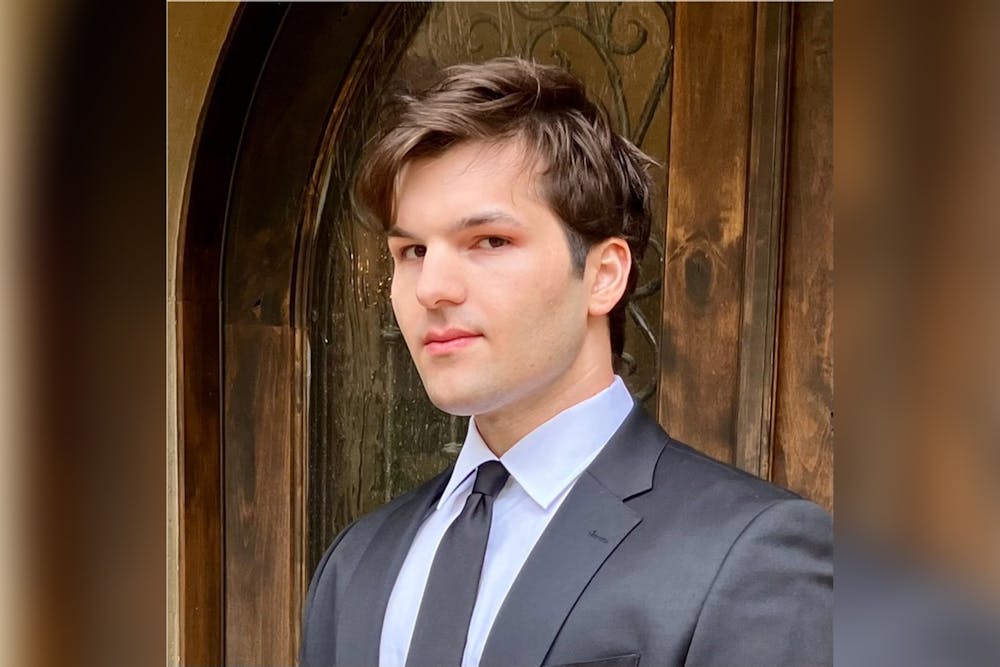
2020 College graduate Andrew Kierszenbaum composed music for Emmy-acclaimed Netflix original series “Arcane.”
2020 College graduate Andrew Kierszenbaum, who composed music for Emmy-acclaimed Netflix original series “Arcane,” reflected on how Penn's Department of Music shaped his career in the arts.
Kierszenbaum started working on the show immediately after graduating from Penn and recently completed his work. His music is featured in the first season of the show, which won four Emmys, as well as the second season, which finished releasing on Nov. 23.
During his time working on “Arcane,” Kierszenbaum created several compositions, focusing on both traditional and electronic scoring. As a composer, Kierszenbaum explained that his role lies in allowing distinct messages and emotions of the show to emerge.
“[Composing] is about serving the scene and the emotion of the scene,” Kierszenbaum said.
Engineering first year Milo Shan said that, as a watcher of the show, he felt that the music was well-curated for each scene and character.
“Every single shot, every single piece of music seems to have a very distinct purpose to make the experience what it is,” he said.
Wharton junior Alison Yau said that the music made the show a much more immersive experience. She spoke about how the music helped “carry the emotional core: the characters and the plot.”
Kierszenbaum emphasized that Penn was a catalyst for his musical journey. He said he would spend “weekends and nights holed up,” playing piano in the music rooms at Harnwell College House and Harrison College House.
Kierszenbaum also spent a lot of time in practice rooms in the Lerner Center. He added that he appreciated the opportunity to play in front of a community at Penn, especially his two performances in the Harnwell Arts Showcase.
“It’s a lot of these solo experiences that I think were amplified by the beauty of Penn and the beauty of Philadelphia,” Kierszenbaum said. “It was just a great place to be inspired and to write.”
Kierszenbaum said he was able to further develop his skills and love for music with support from various professors at Penn. In a statement to The Daily Pennsylvanian, he credited music professor Jairo Moreno for encouraging him morally and teaching him “very important music theory skills when I was developing my style in my neoclassical/neoromantic piano pieces.”
He added that a conversation with Associate Dean for Arts and Letters and William R. Kenan, Jr. Professor of Music Jeffrey Kallberg about composer Frédéric Chopin also inspired him.
“I remember meeting with professor Kallberg once and sharing a few of my piano pieces with him, and we just spent a few hours talking Chopin,” Kierszenbaum wrote. “That was a very memorable day for me.”
Moreno described Kierszenbaum as an exceptional student and musician.
“I never had in over 30 years of teaching excellent young musicians in the [United] States anybody with … just an ability to produce music at the highest-possible level,” Moreno said. “He speaks through the piano.”
As a Penn graduate, Kierszenbaum said he hopes his story can serve as a pathway for Penn students who may feel reluctant to pursue a career in the arts.
“It has to happen progressively because it makes sense that people would be more cautious going into a career like this,” Kierszenbaum said.
He compared Penn to Harvard in terms of the institutions' connections within the entertainment industry. He pointed to “Saturday Night Live,” which has ties to the Harvard Lampoon, a long-running humor magazine founded by Harvard undergraduates.
“It seems to me that they had a big feeder into comedy, into entertainment in Los Angeles,” Kierszenbaum said. “I think we need something similar at Penn. What we need is more people to go into Hollywood, to go into music, to go into entertainment, so that there is a path forward.”
Although Yau says there “are some really good strides” at Penn in supporting artistic fields through programs like RealArts@Penn internships, she added that Penn “could do better at publicizing the opportunities for arts roles and destigmatizing what it really means to go into the music industry.”
Moreno said the Department of Music is moving in the right direction, but there is “room for more.” He pointed to possible next steps as making “more offerings that speak to students’ interests” as well as increased efforts to connect with the greater Philadelphia community.
In the future, Kierszenbaum said that he wants to continue performing music and not limit himself to one particular path. Within his own music, Kierszenbaum hopes to connect with others.
“Whether it's instrumental, orchestral, a song I sing on … if you can find a way to connect with [the music] in an emotional way, I think I’ve done my job,” he said.
The Daily Pennsylvanian is an independent, student-run newspaper. Please consider making a donation to support the coverage that shapes the University. Your generosity ensures a future of strong journalism at Penn.
Donate



